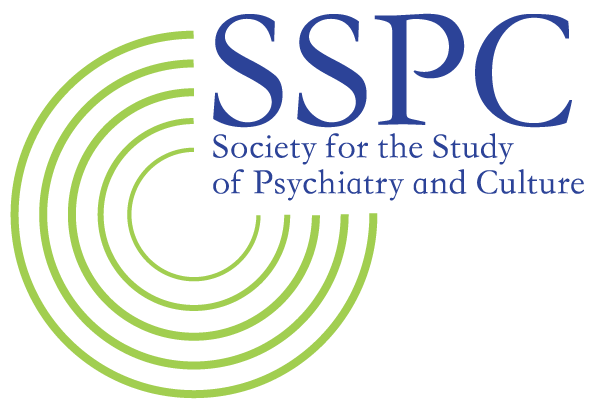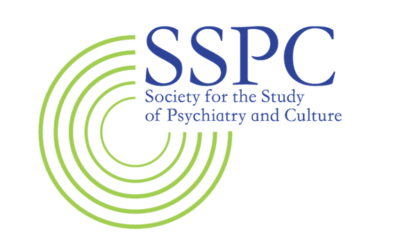Joe Yamamoto, M.D., Ph.D., a long standing member of SSPC died May 24 at age 85. Dr. Yamamoto taught psychiatry at the University of Oklahoma, University of Southern California, and University of California, Los Angeles—giving hundreds of academic presentations and papers on cross-cultural psychiatric issues. He is survived by his wife, Maria; 2 children; and 2 grandchildren.
The most fitting tribute to Joe Yamamoto is an article written by Chester M. Pierce honoring him on becoming president of the American Orthopsychiatric Association from 1994-1995 (American Journal of Orthopsychiatry 64:338-340, 1994). Below is Dr. Pierce’s essay about Joe.
“Joe Yamamoto is Professor of Psychiatry and Chief of the Laboratory for Cross-Cultural Studies, University of California, Los Angeles, as well as Emeritus Clinical Professor of Psychiatry and the Behavioral Sciences, University of Southern California School of Medicine. He can be described simply: Joe Yamamoto is a world-class psychiatrist and a world-class human being. Such attributes are assurances that under his stewardship the American Orthopsychiatric Association will continue as the preeminent multidisciplinary mental health organization dedicated to the elimination of the social and emotional ills plaguing the world.
Joe was the last of six children — five boys and one girl — born to parents who had immigrated to California from Japan. As a youngster in pre-World War II United States, he learned much about race prejudice and the guises it takes, both subtle and gross. At school he was taught to fit the stereotypical mold: compliant, uncomplaining, and deferential. From his own observations he came to recognize the implacable boundaries imposed on occupational and social opportunities for Japanese people in the U.S. He remembers a classmate’s apology for being unable to invite him to a swimming pool because it excluded Japanese people.
This was merely preparation for the searing experience of being placed in an internment camp as a teenager during World War II. Japanese Americans were “relocated” into these, places of barbed wire fences, watch towers, and searchlights. They lived under conditions that were overcrowded and austere, if not deprived. Yamamoto has recorded how his weight fell by 30 pounds (a loss he considered secondary to that of his morale). He was perpetually cold. He recalls an uprising in which unarmed internees were confronted by tanks and by soldiers armed with bayonets. Then, in 1943 he was permitted to enroll at Hamline University in Minnesota. His strong desire to enter medical school provided the motivation he needed to succeed in his undergraduate courses. Extracurricular activities such as managing the school newspaper and editing the school yearbook helped him gain matriculation into the University of Minnesota Medical School, although only after interrogation by the FBI to make sure he was not a security risk.
A seminal experience in medical school involved the racial integration of the Phi Rho Sigma medical fraternity. It was only in the face of great resistance and his own anguish and chagrin that he was pledged and thus broke down the barriers of racism.
Even graduation as an honor student and member of the Alpha Omega Alpha Honor Society was not sufficient for a Japanese American to get an internship; it took considerable intervention by medical school administrators. Then, after completing his years as house officer in Minnesota, Yamamoto served two years in the army, from 1953 to 1955.
In 1955 he began the career in academic medicine that was to take him to the University of Oklahoma, to the University of Southern California, and eventually to the University of California in Los Angeles. His productivity throughout this career has been steady, prolific, and important. Over the years he has published more than 110 articles, 41 book chapters, three books, and numerous book reviews, abstracts, and letters. Furthermore, he has made at least 200 presentations at leading universities, hospitals, and learned societies all over the world. It is no exaggeration to say that Joe Yamamoto is one of the world’s best-known cross-cultural experts. Among his many pioneering contributions have been studies about underutilization of services by minority groups, about the factors contributing to patient and therapist satisfaction in cross-racial settings, and about differences and similarities in clinical symptoms across ethnic groups.
To accomplish this research, Yamamoto has undertaken constant and far-flung collaborations with colleagues in numerous countries. It is difficult to catalogue all the areas to which he has contributed new and important information. At a minimum one would have to include substantial cross-cultural findings about the elderly, the suicidal, the psychotic, the working class, the poor, and the alcoholic. One focus of his studies has been shifts in people’s clinical presentation after they migrate to the United States. His methodologies have been comprehensive and have included the use of biochemical, genetic, epidemiological, and physiological approaches. Among his many co-workers have been well-known academicians in North and South America, Europe, and Asia.
My own favorite example of Yamamoto’s attitude as a physician concerns his conception and development (as an extra, unpaid community service) of an Asian-Pacific Mental Health Center in Los Angeles. His main thrust was to find staff who understood both the language and the culture of patients, all of whom were from Asian or Pacific Rim countries. As this clinic flourished, the ongoing collation of experience led to service innovations as well as to fundamental contributions to the cross-cultural mental health literature.
It is not surprising therefore that Ortho’s new President possesses numerous awards, distinctions, and honors. They are too many to name in a short biography, yet even a partial recitation may serve to demonstrate his qualities as a leader, a scholar, and a physician. He was president of the Southern California Psychoanalytic Society from 1972 to 1973, president of the American Academy of Psychoanalysis in 1978, and vice president of the American Association for Social Psychiatry in 1984. He was also on the board of directors of the Group for the Advancement of Psychiatry from 1992 to 1994 and is on the board of the Pacific Rim College of Psychiatrists. He has held a large number of posts on prestigious national and international committees and has been a consultant, editor, or referee for a number of journals of high repute.
He has worked on a panel of the World Health Organization and testified before the Presidential Commission on Mental Health. He is listed in Who’s Who in the World. Time devoted to the Japanese American National Museum is among his many community services, while his contributions to organized mental health via service to numerous groups at the National Institute of Mental Health, the American Psychiatric Association, and the American College of Psychiatrists are well known and much appreciated.
All this achievement in community service and research notwithstanding, it is as a teacher that Joe Yamamoto has made his most enduring contributions. Besides predoctoral and postdoctoral students from many countries, he has taught students in medical centers and in his own laboratory and has been unstinting in his efforts on behalf of young investigators, particularly minority persons, getting them started and helping them continue in their studies. His wise counsel, robust support, immense experience, and firm command of the literature have made him a well-known and much-used national resource for people involved in international, interracial, and cross cultural research.
Students in the mental health professions have also found him an invaluable teacher because of his abundant clinical skills and wide-ranging interests. They discover that, besides the crosscultural studies for which he is perhaps best known, he has worked on an astonishing array of subjects — hypnotherapy, female sexual disorders, psychotherapy, and medical education, to name just a few.
Those of us privileged to know Yamamoto and his lovely family cherish him for his gentleness, generosity, wit, and warmth. He is a superb host. He reads widely and is much traveled, is expert on an assortment of ethnic cuisines, and counts photography among his many hobbies. He and his wife, Maria, are proud of their sons, Eric and Andy, and love their daughter-in-law, Magda, and their granddaughters, Kristina and Kathy. Yamamoto is well aware of the importance of the ethnic family, having benefited from the support and help of his own. He has many and interesting friends from all walks of life.
The word “Joe” can be translated as “Yuzu-ru” (humble) in Japanese. In all the best senses of the word, our President is Joe. At the same time, he is a proven leader, an excellent doctor, an acknowledged expert. We have graced ourselves by electing him.”
In addition to the accomplishments outlined by Dr. Pierce, Joe Yamamoto also received the 1993 received the Asian-Asian-American Award from the APA. At the time he was a professor of psychiatry at UCLA and chief of the institutes laboratory for cross-cultural studies. He was recognized for advancing the understanding and treatment of mental disorders among Asian and Asian American populations through clinical service, community service, and research about genetic and cultural factors affecting mental illness.
In 2004 he received a Special Presidential Commendation from the APA in recognition of his lifetime career devoted to the needs of patients in the public sector and studies enlightening our profession about the impact of cultural issues.
In 2007 Joe received the Lifetime Achievement Award from SSPC.
The SSPC has graced itself by having him as a member and we fondly remember him as our friend and colleague.

